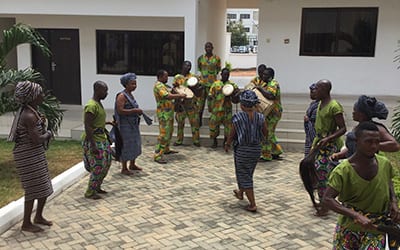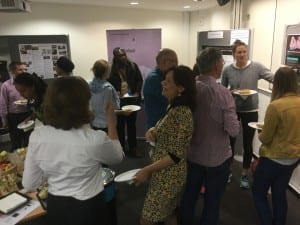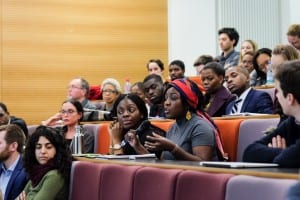UCL Qatar: Introducing Innovation Labs to Zambian Cultural Heritage Institutions
By By Guest Blogger, on 25 September 2019
By Milena Dobreva-McPherson, Associate Professor, Library and Information Studies, UCL Qatar.
Over the years, UCL academics have contributed in different ways to the six Grand Challenges. One of them is Cultural Understanding, and it looks at the differing, complex, and evolving relationships between people, communities, and culture in the interconnected world of today.
After many years of digitisation in libraries, museums and archives around the globe, there is a vast accumulation of digital content. We are used to it at our fingertips on any digital device. But imagine that you are interested in the diaries and other objects related to the explorations of David Livingstone in Zambia. They have already been digitised, but you must take a trip to consult the digitised collection of the museum on-site because it is not available online.
This is still the case with plenty of cultural and scientific heritage digital content from the Global South, a region which suffers the digital divide.
The digital divide results in many deficits in access to knowledge due to missing, or the very slow adoption of, modern technology. In the cultural heritage domain, the digital divide results in the lack of exposure of digital content which exists but is not made available online. There are various explanations why this is the case – ranging from lack of suitable infrastructure for digital asset management to inadequate or missing policies for user engagement with the digital content.
Led by the desire to explore what this means in the Sub Saharan African context, I submitted a proposal to the most recent call for teaching activities in Africa and the Middle East of the Global Engagement Office at UCL. It aimed to deliver the first workshop in innovation labs in cultural heritage institutions for Sub Saharan Africa in Zambia.
Having two major obstacles in mind – inadequate infrastructures and lack of user engagement policies – we designed a workshop which addressed both areas. In a world where Open Science becomes increasingly popular, the opportunities for digital presence are changing. One solution to the issue of not sharing content online due to inadequate institutional infrastructure is to start using open platforms.
The exciting work started when my proposal received support, and we scheduled our workshop to be delivered on 1 August 2019 at Livingstone Museum, Zambia.
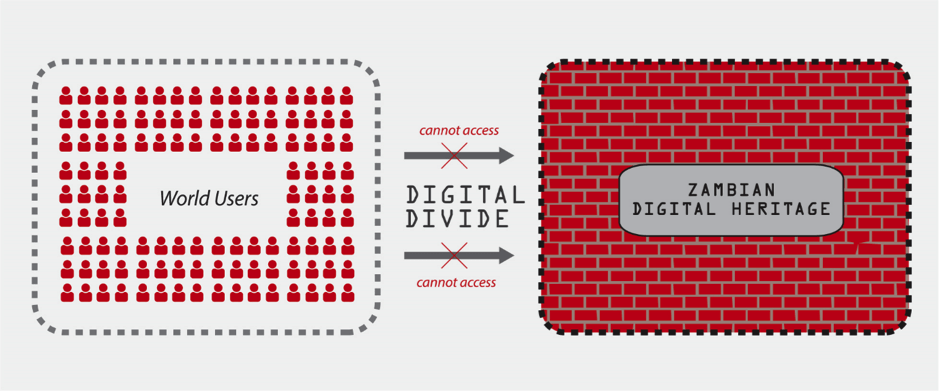 Fig. 1. Zambian digital content is mostly available for consultation in-house – thus world users cannot access it as a consequence of the digital divide
Fig. 1. Zambian digital content is mostly available for consultation in-house – thus world users cannot access it as a consequence of the digital divide
The rationale of the workshop was to spread the innovative knowledge accumulated at UCL Qatar to setting up successful innovation labs in cultural heritage institutions in Zambia. The workshop targeted professionals from Cultural Heritage Institutions who have responsibilities to manage digital collections and those with future intentions of engaging in the curation of a digital collection in Zambia. The workshop aimed to:
- Equip museum and library professionals in Zambia with knowledge on the approaches to setting innovation labs and discussing how local institutions can work towards creating such labs.
- Raise awareness on the role cultural institutions offering digital content play in boosting the digital skills of scholars, educators, learners, and creatives.
UCL Qatar worked with several institutions in Zambia to prepare and deliver the workshop, including the National Museums Board of Zambia – an umbrella institution for national museums, the National Archives of Zambia, and the Department of Library and Information Science from the University of Zambia (UNZA). It also included online interventions from the British Library.
We focused the content of the workshop on state-of-the-art digitisation, examples of digitisation projects from Zambia, and setting up innovation labs in libraries, museums, and archives. There was also plenty of discussions and a practical exercise on understanding better the needs of users of digital collections.
Participants
Initially designed for 15 participants, the workshop was delivered to a total of 27 participants (see Fig. 2)
 Fig. 2. Profiles of participants
Fig. 2. Profiles of participants
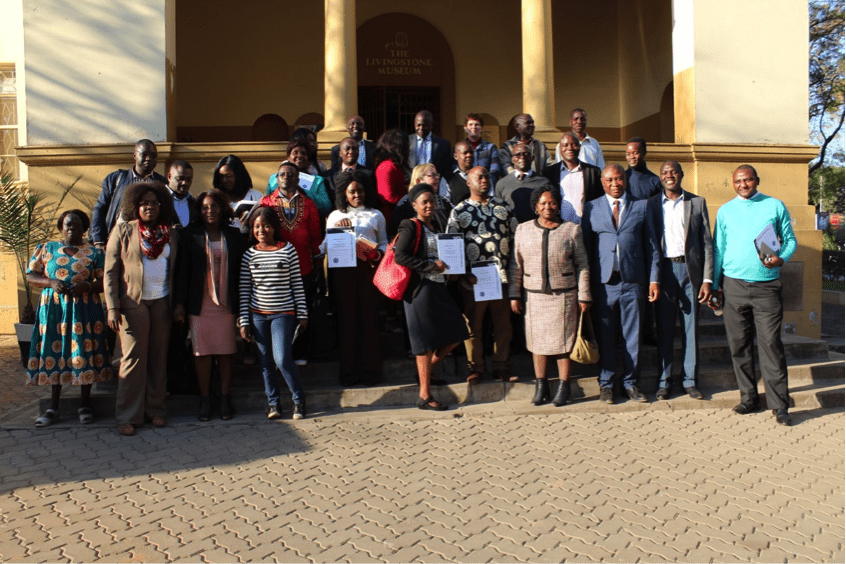 Figure 3: Workshop participants
Figure 3: Workshop participants
Feedback and impact
Eighteen out of the 27 participants provided feedback and it was overwhelmingly positive. The participants were asked to rate the content of the workshop and also to comment on the value of the knowledge for themselves and their institutions.
One participant said:
“The programme should be repeated for other professionals in Zambia and if it comes I will recommend it to others.”
There were also opinions on how to take forward the knowledge shared at the workshop:
“Put the knowledge acquired in the workshop to use ASAP, conduct a follow up workshop to determine progress in created innovation labs, and massive awareness creation of the existence of the innovation labs created to potential users”
“Embrace new trends and technologies relating to digital platforms and information sharing through innovation labs”
“I’m suggesting that maybe if its possible to continue having such workshops every year so that we learn more new techniques on how to improve our libraries. Also, the workshop should have taken at least three days to allow participants learn more”.
The workshop received media coverage from three newspapers and some local radio stations.
Another innovative outcome from this event was that UCL Qatar added the first-ever dataset of the potential for Innovation labs in Africa on the UCL repository: Dobreva, M., and Phiri, F.. (2019, August 20). Cultural Heritage Innovation Labs in Africa (Version 1). figshare. https://doi.org/10.5522/04/9685127.v1
A Google folder with all the presentations, press coverage, and photos of the event is also openly available: Innovation Labs Workshop – Zambia
Conclusion
The Funding from GEO made it possible for UCL Qatar to host this first-of-its-kind workshop in Sub Saharan Africa.
This has resulted in a beneficial collaboration with local institutions in Zambia such as the National Museum Board of Zambia, University of Zambia and National Archives of Zambia to deliver of the first-ever workshop on Innovation Labs in Sub Saharan Africa.
The workshop also inspired a new sense of enthusiasm in participants to make their digital collection accessible online.
Acknowledgment
I would like to thank Dania Jalees for the infographics, Fred Nuyambe for the photograph and Fidelity Phiri who collaborated on this project.
 Close
Close




